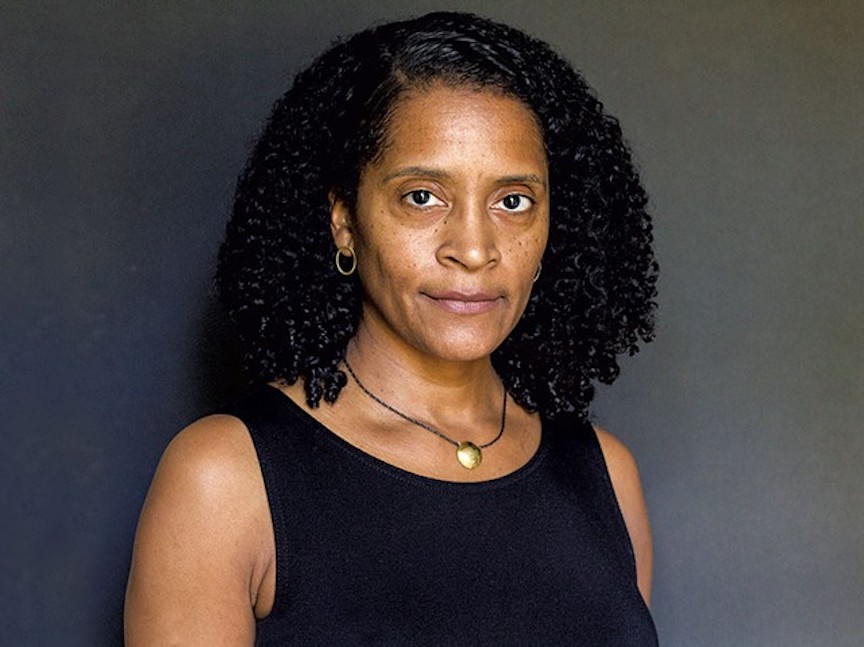My partner thinks I put my desk below the towel rack in my bathroom to hide from my loving parents, but that’s not the whole story. Writing fiction, to my attorney parents, financially literate sisters, and medical student partner, is a bizarre effort. They wonder what facts I work off of. Am I reading into everything they do, how they do it, and why? What does “telling the truth” mean, if mine’s the only voice on the page? My family nervously eyes my laptop and notepad. I imagine they are curious, and insecure. We’ve all been living together for three months, quarantined beneath the same butter-lettuce green rafters. Who, but them, could I be harvesting for material?
I work in my bathroom to keep from overanalyzing my family, the people who analyze me most. They don’t write about me, after all. I’m the threatening one.
I didn’t choose the bathroom for its grandeur. The room is narrow and yellowed with a bathtub against the wall and cobwebbed windows above the toilet and sink. My desk stands skinny in the middle of the room, paired with an oversized wicker chair that weaves red pressure ribbons into the backs of my thighs. I leave the windows open for the June beetles, the masculine, hairy-chested bugs that cling to the slatted blinds, or wallow belly-down in the cool tile grout. When I drink coffee and think, I stare at a tapestry of geometric fish. My filthy bathmat. Shed hairs. The untouched, unclean space gives me the illusion of control. I am alone. This space is mine. From my chair, I savor the view of the lazy lemon tree in the yard. I witness it failing to produce citrus. As a writer and woman, I feel inspired by this tree, how it refuses to deliver what’s inherently expected of it. The way it blooms and stops there, as if it prefers flowery anticipation to the weight of providing fruit.
Of course, I considered putting the desk in the bedroom I share with my partner. But there’s something in that word share, in our shoved together twin mattresses, that makes me feel restricted, more likely to hook on a bra, less likely to write honestly about power dynamics within our rituals of sex and hygiene. Also, my parents like to “check in” throughout the day. They knock as they enter my bedroom. They created me. They fed me Grape Nuts, let me quit Sunday School, and coached me through changing lanes on the 101 freeway. They’ve earned their access to me. But to write well, I need to access myself outside the sometimes performative roles of partner, sister, daughter. In my bathroom office, I’m scantily clad and greasy, or naked and slouching, free for a few hours from the ever-present eyes of the loves I’m lucky to have. To write honestly in an always-populated house, I need the bathroom’s contextual authority of privacy, guarded by the shame we feel when we walk in on a body expelling its insides. I want the propelling risk of intrusion. I like the idea that what I produce could repulse and repel.
It’s early July, and my partner and I temporarily leave the bathroom office behind to spend the Fourth with his family, because we have access to a car, and it would be unfair not to share ourselves with them, too. In his family’s house, my role is that of the “future daughter in law,” which I abbreviate to “FDL” to make the title sound less serious. As an FDL, I’m questioned often about my plans for our settled-down home, and my hopefully-fertile womb. Again, I am the only “artist” in this household. I don’t clock in at clinic or court. My work smells of “stay-at-home.” I feel filtered through expectations of what I should be—Wife, Mother, Neighbor—rather than who I am right now. I suppose I could be flattered. I understand the excited focus on the future, given our pandemically paused presents. But I’m overwhelmed. Can an FDL repulse or repel politely? I’m happier at my desk in my bathroom with the beetles and sweet, grimy rustle of the shower curtain, making up dramas about unreal people. Fiction feels safe. Living with real people is riskier.
I call my partner “partner” because he works toward the title. He encourages me to prod at the power dynamics of our close-quartered relationship. Back in my bathroom office, he balances mugs of espresso on the tub’s ledge, and leaves without looking at me, without asking me to acknowledge his offering. He tells me he’d carry those potential future babies of ours if he could, like a male seahorse. For now, in his family’s house, I retreat to their bathroom and find a crane fly in the corner of the shower. I reach out for the sketchy collision of its wings. Its panicked reaction centers me, but I can’t hide in here for more than a few minutes before people start worrying about the state of my bowels. Still, there’s a thirst-quenching rebellion in shutting doors, especially doors in houses that aren’t mine, and that I can’t leave.
I ditch the crane fly and find my partner alone in the kitchen. We unload the dishwasher together. We share a jumbo marshmallow like an apple. I drop a circular slice of lemon in a clean, warm glass and wet it with gin. We drink, and stack dry plates into a neat collection. I wordlessly agree to play my part of FDL here, to keep the peace. And I’m okay with that choice, because I think tension is useful. I’d have no business being a writer if I didn’t.
photo by Brooke Davis




